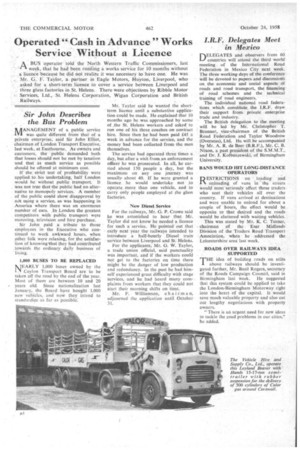Sir John Describes the Bus Problem
Page 38

If you've noticed an error in this article please click here to report it so we can fix it.
MANAGEMENT of a public service was quite different from that of a private enterprise, said Sir John Elliot, chairman of London Transport Executive, last week, at Eastbourne. As owners and customers, the public demanded both that losses should not be met by taxation and that as much service as possible should be offered at minimum cost.
If the_ strict test of profitability were applied, to his undertaking, half London would be without public transport. It was not true that the public had no alternative to monopoly services. A member of the public could show disapproval by ndt using a service, as was happening in America where there was an enormous number of cars. In London the greatest competitors with public transport were motoring, television and hire purchase.
Sir John paid a tribute to those employees in the Executive who continued to work awkward hours, when other folk were relaxing, for the satisfaction rof knowing that they had contributed towards the ordinary daily business of living....
1,000 BUSES TO BE REPLACED
NEARLY 1,000 buses owned by the . Ceylon Transport Board are to be taken off the road by the end of the year. Most of them are between 10 and 20 years old. Since nationalization last January, the Board have bought 1.000 new vehicles, and now they intend to standardize as far as possible:




































































































